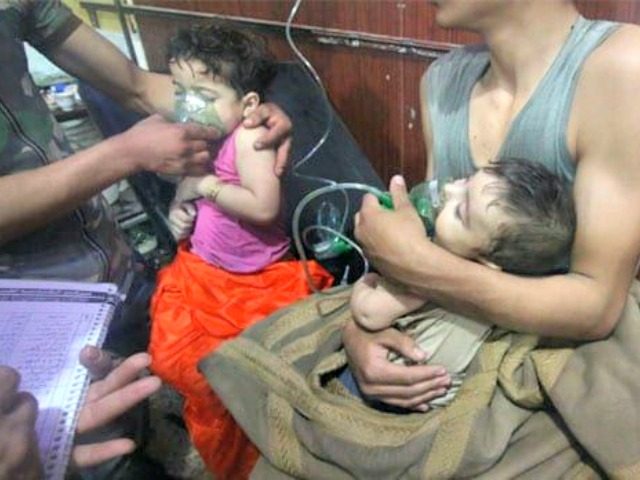The Syrian government of President Bashar al-Assad created diplomatic uproar Tuesday as it assumed the rotating presidency of the UN-backed Conference on Disarmament (CD) at a time when Damascus is widely accused of using chemical weapons against its own people.
“Monday, May 28 will be one of the darkest days in the history of the Conference on Disarmament with Syria beginning its four-week presidency,” tweeted US ambassador to the CD Robert Wood ahead of the official appointment of Syria to the position.
Monday, May 28 will be one of the darkest days in the history of the Conference on Disarmament with Syria beginning its four-week presidency. The Damascus regime has neither the credibility nor moral authority to preside over the CD. The int. community must not be silent. pic.twitter.com/6tk32NJjO6
— Robert Wood (@USAmbCD) May 25, 2018
During the first open session of Syria’s presidency on Tuesday, the U.S. led a number of diplomats in protest.
Mr. Wood briefly left the room when Syria’s ambassador Hussam Edin Aala opened the session, before returning to voice Washington’s displeasure from the floor. He told the assembly:
Today marks a sad and shameful day in the history of this body. Let me be clear: we cannot permit ‘business as usual’ in the CD while Syria presides over this body.
During the next four weeks, we will be present in this hall to ensure that Syria is not able to advance initiatives that run counter to the interests of the United States, but we will fundamentally alter the nature of our presence in the plenaries.
Britain also protested against the move, with British ambassador Matthew Rowland releasing this statement:
The UK deplores the fact that Syria will assume the presidency of the Conference on Disarmament, given the regime’s consistent and flagrant disregard of international non-proliferation and disarmament norms and agreements.
UN secretary general Antonio Guterres, who put his own disarmament proposals to the CD last week, washed his hands of the matter, saying he had “no power” over the rotation system. He said he hoped Syria’s presidency would not have a “negative impact” on the conference.
Syria has consistently been accused of using poison gas in its seven-year civil war.
A suspected chlorine and sarin attack in the Syrian town of Douma on April 7 this year triggered punitive missile strikes against alleged chemical weapons sites in Syria by the US, Britain and France.
In April 2017, a government gas attack in northern Idlib province, Syria killed 100 and injured another 400 people.
In 2013, an attack in the Ghouta region left nearly 1,500 dead, more than 400 of which were children, and the U.S. attributed it to chemical weapons. The attack crossed the “red line” set by then-President Barack Obama, who had pledged to take action if the Syrian government used chemical weapons.
The CD was created in 1979, and one of the most significant treaties was the 1993 Chemical Weapons Convention, which bans the production, stockpiling or use of chemical weapons.
Follow Simon Kent on Twitter: Follow @SunSimonKent or e-mail to: skent@breitbart.com

COMMENTS
Please let us know if you're having issues with commenting.